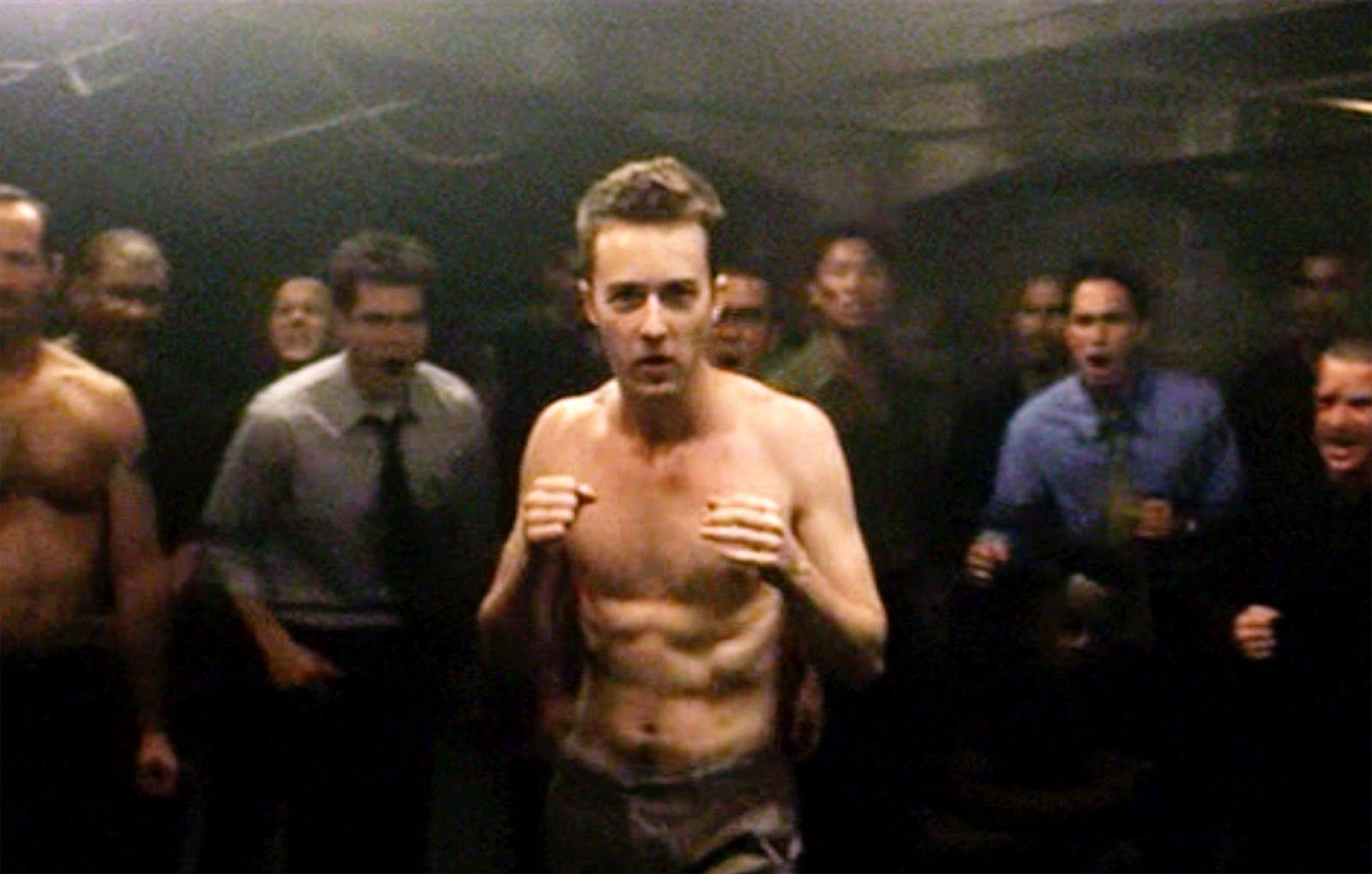Let’s face it: we’ve all understood the Fight Club rules for nearly two decades. We’re currently shattering numbers one and two! We’re very naughty, aren’t we? Fight Club, although being almost old enough to be deemed a classic, has remained enigmatic throughout time—particularly it’s ending. David Fincher’s psychological thriller from 1999 ended with a huge dang twist, followed by a big dang bang that left the audience reeling and a little puzzled. If that’s the case, we’ve got you covered with our comprehensive breakdown of Fight Club’s conclusion. There will be spoilers ahead.
Laura Ziskin, the producer of Fox 2000 Pictures, optioned Palahniuk’s novel and hired Jim Uhls to create the film adaptation. Fincher was chosen because he was enthralled by the story. He worked on the script with Uhls and enlisted the help of the cast and others in the film business for scripting suggestions. With a subject of confrontation between Generation X and the value system of advertising, he and the cast linked the picture to Rebel Without a Cause (1955) and The Graduate (1967). Fight Club did not meet the studio’s box office expectations, and critics gave it mediocre reviews.
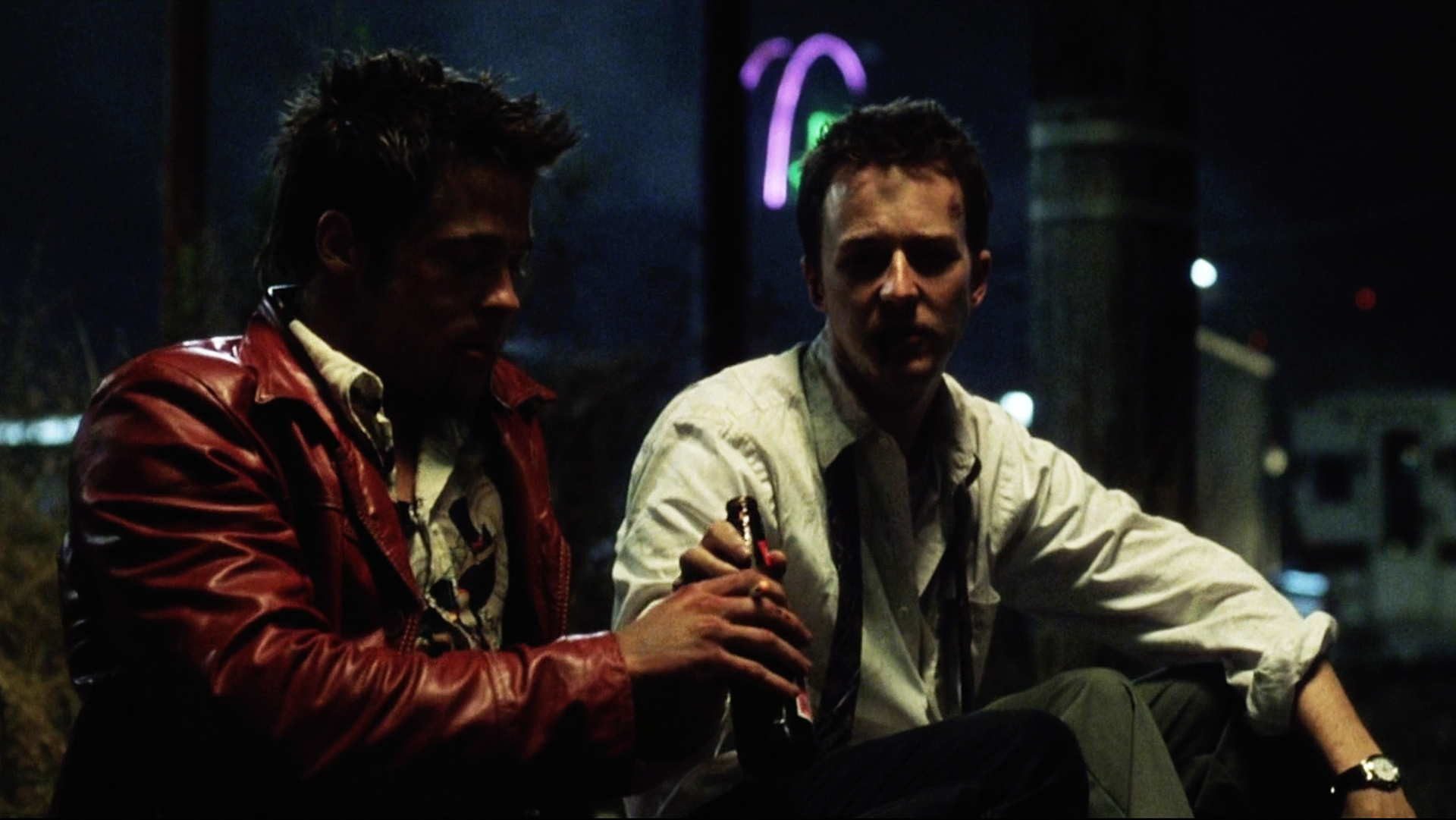
‘Fight Club’
Tyler Durden is Who (or) What he is?
If you’ve ever had a late-night fantasy about Brad Pitt that got a little out of hand (and who among us hasn’t? ), you’ll have a good idea of how Edward Norton’s nameless, sleepless Narrator managed to first develop and then become the legend known as Tyler Durden. Tyler isn’t genuine; he’s the physical incarnation of a disgruntled corporate consumerist drone’s desperate desire to opt-out of—and thereby destroy—the system. If Fight Club were shot from a third-person perspective. It would tell the story of a mentally disturbed guy who leads a peculiar double life as an office worker by day and a charismatic cult leader by night, battling his evil impulses until he succumbs to them.
However, because of the film’s completely untrustworthy first-person narration, we see Tyler as the Narrator sees him: a charming, red leather-jacket-clad nihilist whose entire schtick is #lif To use the “That’s me in all the ways you wish you could be,” says the man himself. I look the way you want me to look, I f*** the way you want me to f***, I’m smart, capable, and most importantly, I’m free in all the ways you’re not. Tyler calls himself the Narrator’s “imaginary friend” at one point, but he’s more of a hallucinatory hitman, hired by the protagonist’s subconscious to blow up his life…and a few other things.
Nobody knows they were there, but they were.
Fight Club doesn’t give anything away about its huge twist, but Tyler Durden appears four times before we meet him—each time as a single-frame blip on the screen. Re-watching these scenes, it’s clear that Tyler isn’t a genuine person. But it’s no coincidence that our first glimpse of Tyler comes in the form of a subliminal message in a film that makes such explicit remarks about commercialization and human manipulability. You feel like you know him by the time he makes his spectacular entry as the Narrator’s aircraft seatmate.
What exactly is going on with the vehicle scene?
Tyler and the Narrator, while being the film’s two key characters, rarely interact with each other in front of others, which is one of Fight Club’s niftier sleights of hand. However, there is one major exception, which occurs about two-thirds of the way through the film, when they are involved in a car accident with two other members of Project Mayhem.
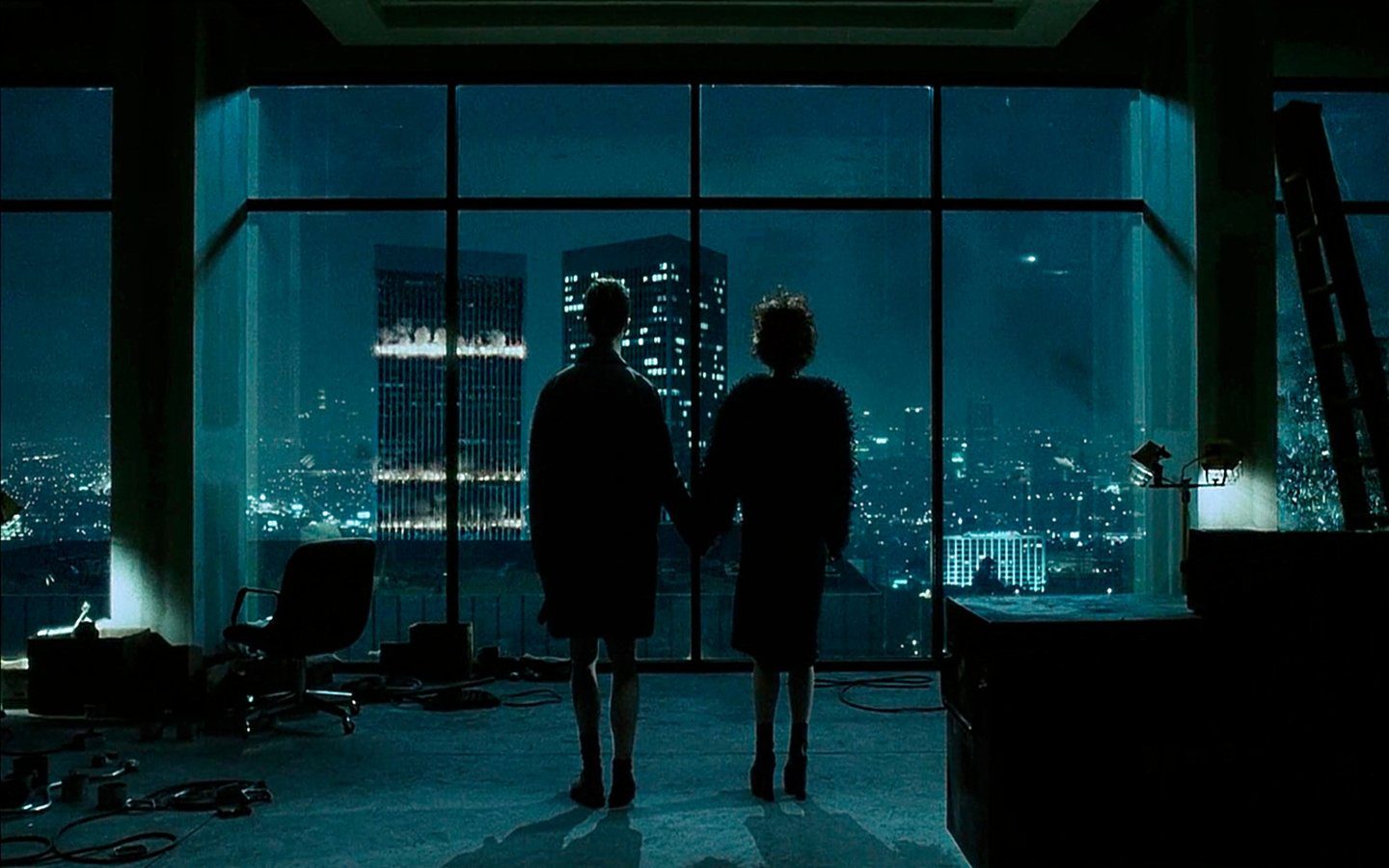
‘Fight Club’
The first scene initially appears to be a couple’s spat between the Narrator and Tyler, with the Mechanic and Steph acting as a strange Greek chorus in the background. The scene still works as an illustration of indoctrination-in-action if the Narrator’s half of the discussion is removed. Also, observe how Tyler, who was driving at the time, emerges from the passenger side of the car after the incident and pulls the Narrator from the driver’s seat.
Is Tyler no longer alive?
The Narrator sticks a gun in his mouth and pulls the trigger in the last moments of Fight Club, but it’s Tyler Durden who collapses on the floor, his brains oozing out the back of his head. Why? Tyler’s nation of why and how the Narrator created him may hold the answer: “I am free in all the ways you are not.” But who is freer than a man who is willing to sever the rope that binds him to life?
The Narrator both takes and surrenders control as he fires the gun; he lets go of every meaning of the word. And while he doesn’t die at that point, his life as he knows it is arguably over—and he’s arguably reborn in the next scene, taking Marla’s hand and peacefully watching Project Mayhem come to an end. More food for thought: given that members of Project Mayhem who offer their lives for the cause are given names, and given that the nameless Narrator was both the project’s originator and its first unwitting member. We wouldn’t be shocked if he adopts the moniker “Tyler Durden” in the future.
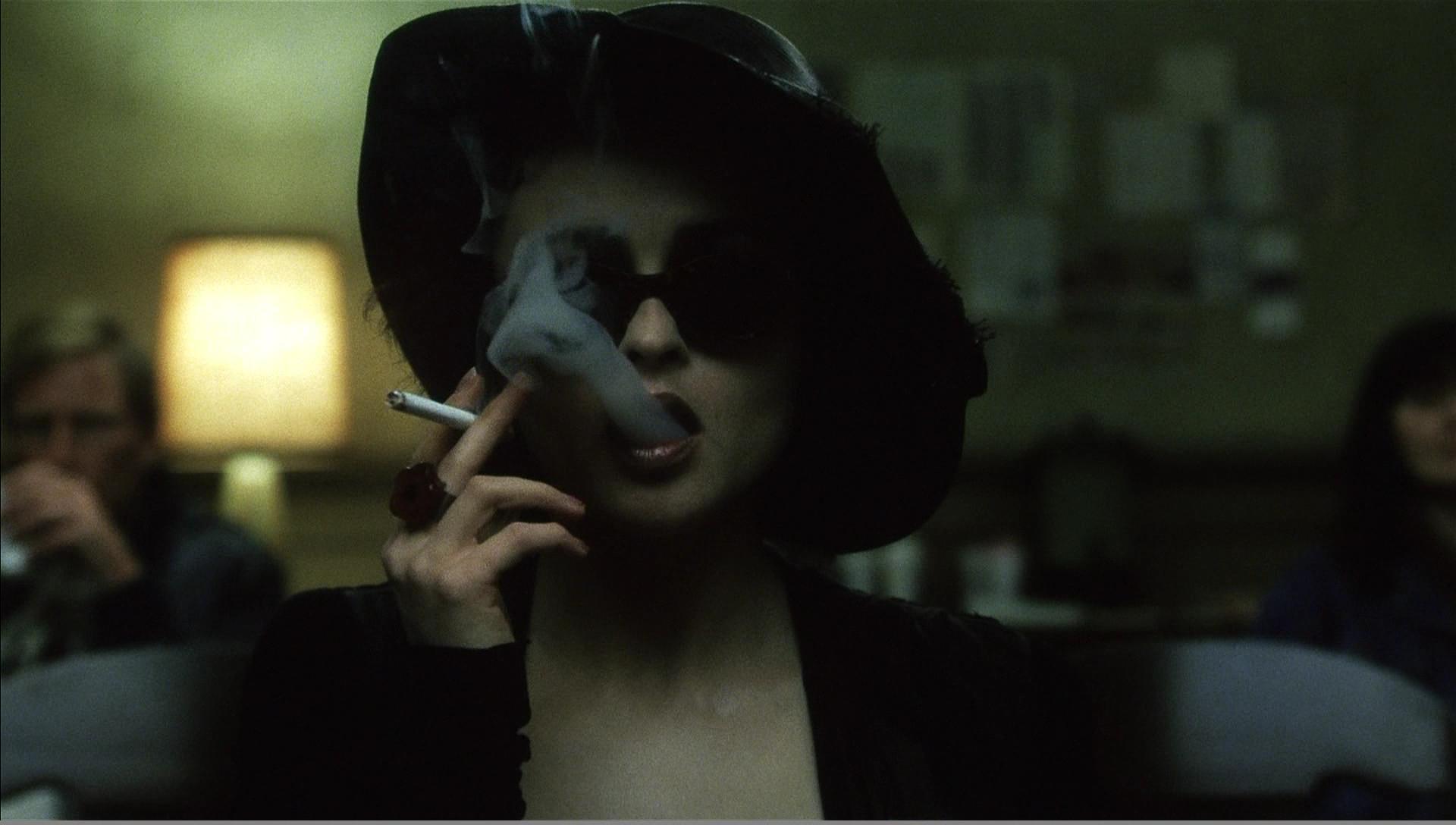
‘Fight Club’
So, what’s next?
Fight Club ends just before Project Mayhem detonates bombs in the basements of multiple buildings housing credit records, signaling the beginning of a new age of “financial equilibrium” for Tyler and his followers. (“If you delete the debt record, we’re all back to zero,” the narrator says to the cops when detailing the idea.) “It’ll cause havoc.”) Is this, however, the end of the quest, or merely the beginning?
Tyler imagined a scenario where leather-wearing, subsistence-farming survivors of the apocalypse live out their lives surrounded by crumbling, outmoded monuments to consumerism in an earlier lecture.
When you consider that dozens of independent, anarchist Project Mayhem cells had formed across the United States by the time the Narrator regained control of his faculties. All populated by Space Monkeys willing to risk their lives for a better world. It’s a safe bet that these explosions are just the start of an apocalyptic destruct-a-thon designed to permanently dismantle the system.
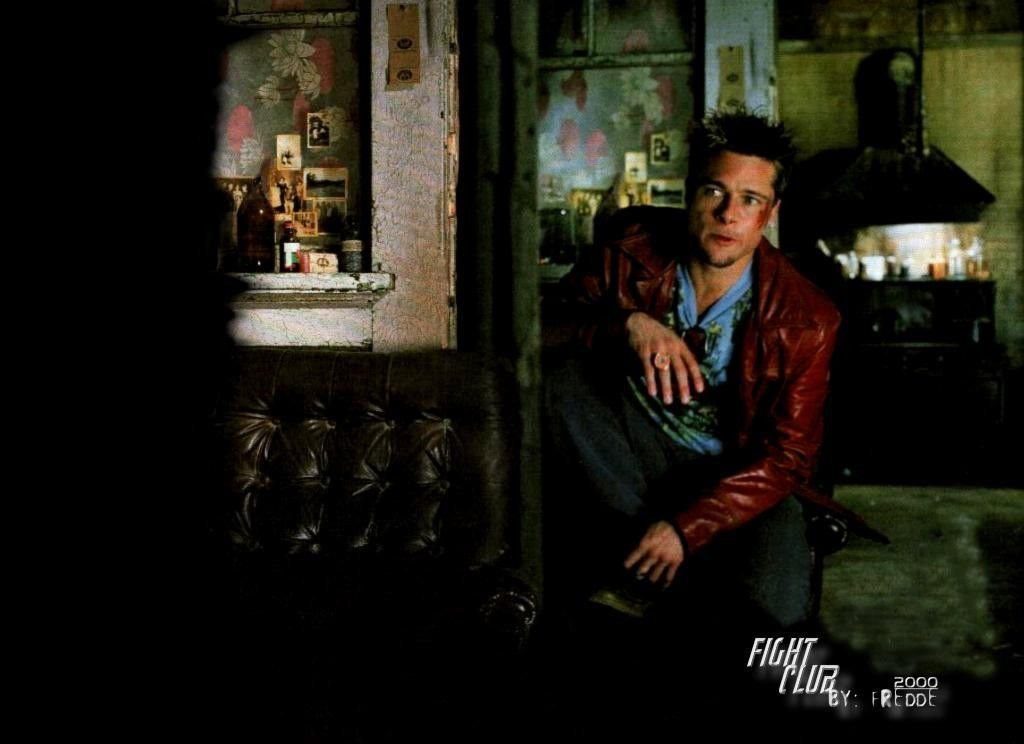
‘Fight Club’
Is there a moral to this story?
Tyler Durden’s incessant Nietzschean lectures about the inevitability of death. The futility of ladder-climbing in Fight Club has a lot to say about the pitfalls of our consumer society. “Advertising keeps us pursuing cars, clothes, and performing jobs we don’t like, so we can buy things we don’t need,” he claims. However, although Tyler’s nihilism is undeniable, the film’s message is less so. For one thing, even after putting a bullet in his head to kill Tyler, the Narrator never truly embraces that viewpoint. For another, Fight Club accidentally instills a corporate capitalist, all-American work ethic in its anarchist cult leader: just look how much you can achieve if you work hard, believe in yourself, and never, ever sleep!
Also Read: High On The Hog Season 2: When Is It Returning To Netflix?

















